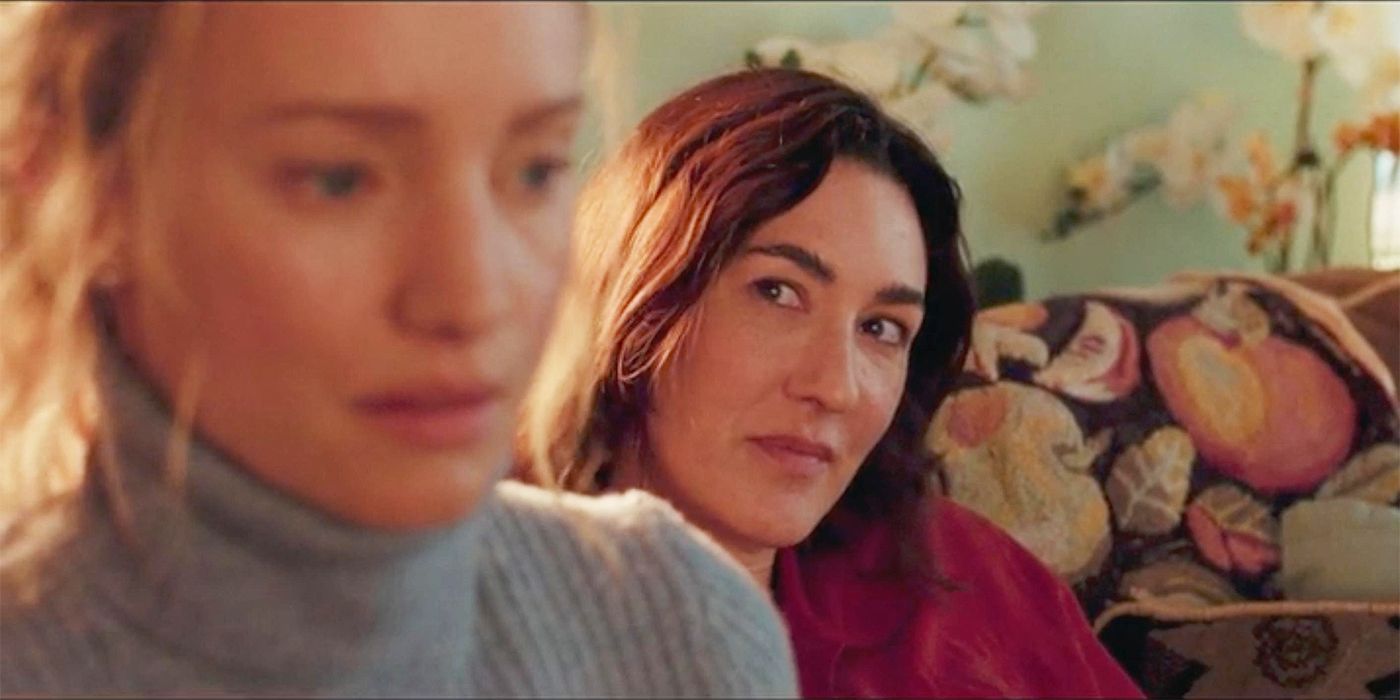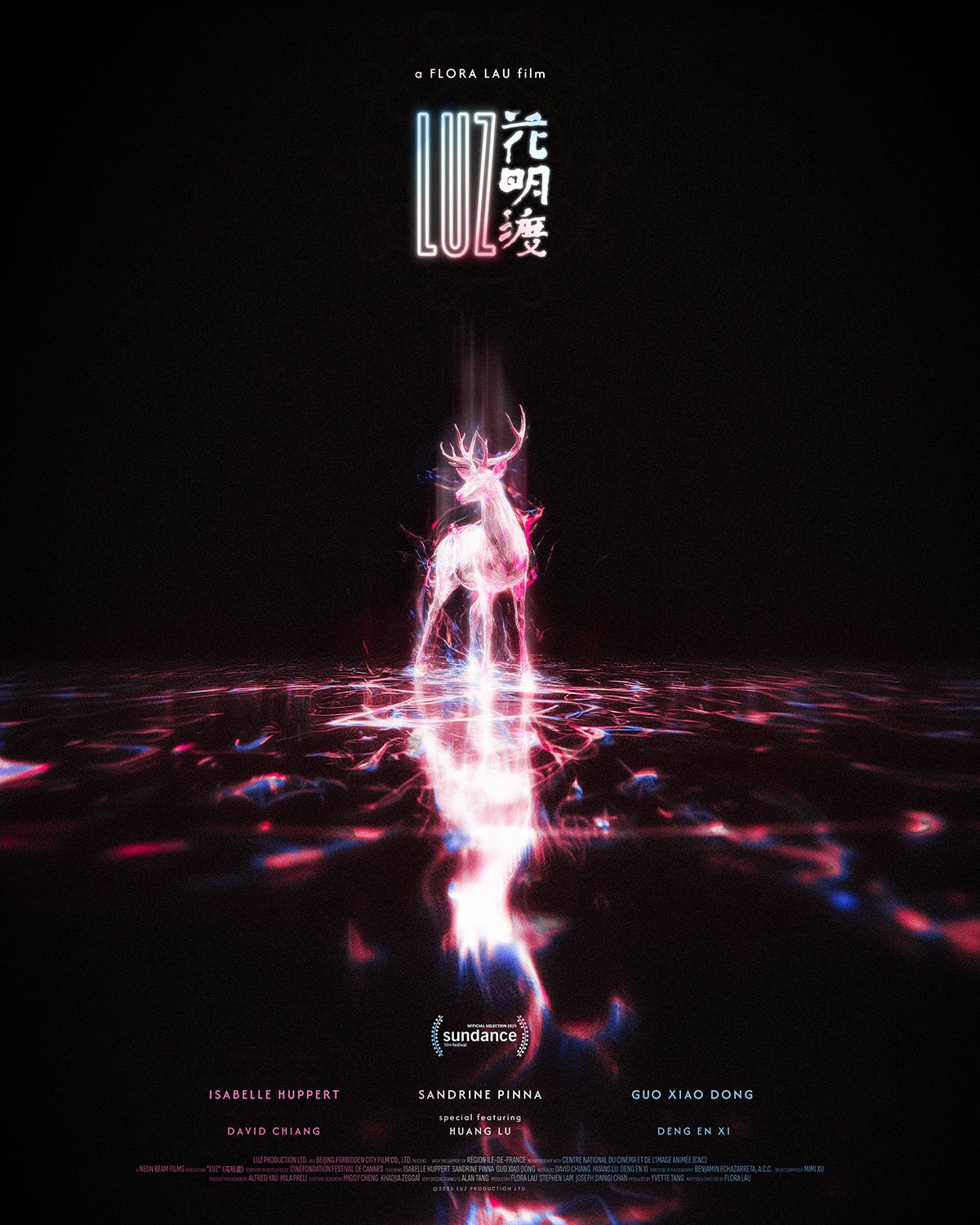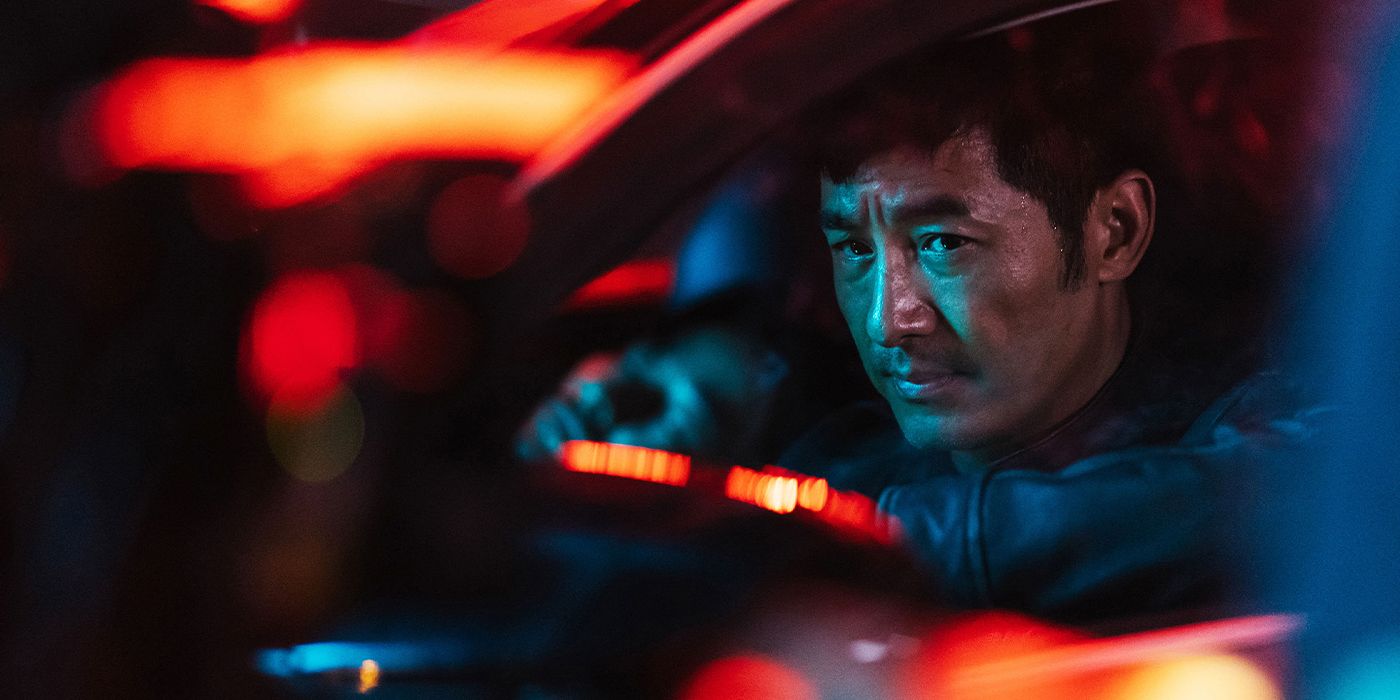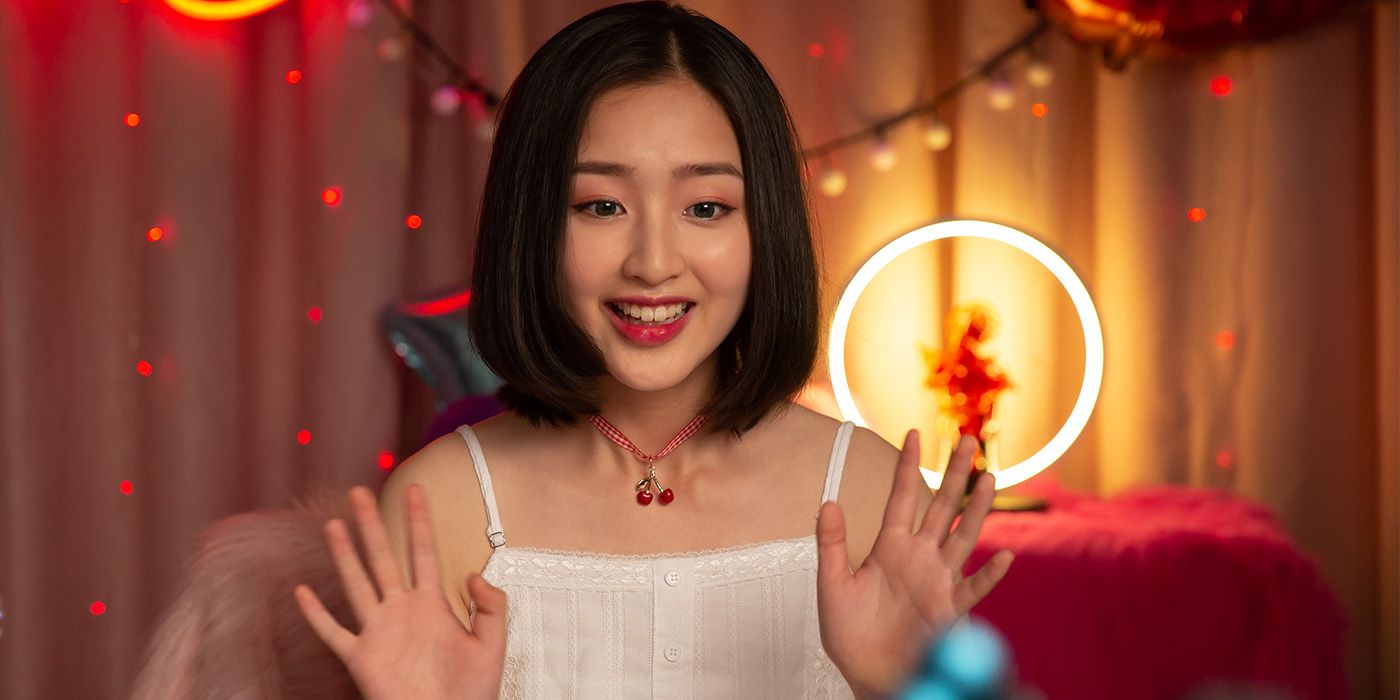
As VR becomes more commonplace in our lives and communication and contact become more digitized, the longing for true connection is ultimately what still grounds us. Although so many of our lives have become inextricably linked to the digital sphere, at the end of the day, what we seek and what makes us thrive is not something that can only be found in that medium. Flora Lau‘s Luz gives us a digital space called Luz, a place that people are entranced by, where they can enter different worlds and live out their fantasies. But what anchors Luz is that deep desire for connection. And, as Lau fluidly jumps back and forth between the real world and the digital world, she tells a complex story of two people who become intertwined in Luz while on their own journeys of self-fulfillment.
What Is ‘Luz’ About?
Luz follows two characters named Wei (Xiaodong Guo) and Ren (Sandrine Pinna), who lead separate lives but come across one another in Luz. The two come from opposite worlds. Wei works at a karaoke bar and for shady men in businesses of ill repute. Ren is a gallerist and the daughter of a well-known artist. However, both characters are bonded by their individual parent-child relationships. Ren is called back to Paris where her stepmother Sabine (Isabelle Huppert) is struggling in the last days of a terminal illness, while Wei seeks to find his estranged daughter Fa (Enxi Deng) after a disastrous meeting over a video stream.
Set between the VR world, Paris, and the bustling metropolitan of Chongqing, China, Flora Lau weaves the stories back and forth with this common thread, mixing both the high-tech, neon-soaked world of Chongqing with the timeless and understated Paris can sometimes feel jarring, but the world of Luz acts as a liminal space between these two differing worlds where Wei and Ren find not only common ground but unexpected support in their times of need.
‘Luz’ Different Settings Create Different Moods Within the Film
One of the things that stands out the most in Luz is the fact that there is a different visual palette in each of the worlds. There’s something artificial and sci-fi about the Luz VR world. It’s both isolating and crowded. People load into a waiting space where they drink fake drinks and chase after a digital deer. In Chongqing, Luz is the hot new thing. Everyone has a headset and a pair of gloves so they can play in the world. Camgirls ask for money to buy new outfits in-game and it has become the newest addiction.
In contrast, there’s something very gritty about Chongqing. Sure, it’s also neon-soaked and often we find ourselves either in Wei’s spartan apartment or at the club where everything is doused in pink and blue lights, but it’s a real space. It’s tangible. We watch as Wei struggles to reach out to his daughter, as he forms bonds with his co-worker and her young daughter who is a sort of surrogate child for him. Lau’s Chongqing feels futuristic in the way it depicts Luz as a part of everyone’s life; it feels like we’re looking into the near future often, in a place where everything feels commodified and what is real and what is fake begins to bleed into each other.

Related
‘Two Women’ Review: Housewives Struggle With Monogamy and Married Life in Charming Comedy | Sundance 2025
The film is a remake of a highly influential 1970 Canadian movie.
When Ren returns to Paris, it’s a complete tonal shift. Gone are the dark nights and neon lights; instead we are very much in the present day. Paris is neither looked at through rose-colored lenses nor is it trapped in the past. Ren’s relationship with her stepmother Sabine is complicated, but it’s set against a neutral and earthy backdrop, one that feels incredibly grounded in reality — especially as it is the storyline that deals with the most serious topic. Sabine’s terminal diagnosis stirs up old feelings and unsettled conversations between her and her stepdaughter that play out in sharp contrast to the other two stories.
Family Bonds Take Center Stage in ‘Luz’
It becomes obvious quickly that Luz is about parents and children. Not only is Wei estranged from his daughter, but Sabine and Ren are estranged from each other. While Wei tries to communicate with his daughter through a screen, Sabine and Ren speak to each other in different languages. Conversations jump back and forth with Sabine speaking in French and Ren replying in Mandarin. It’s a clever way of showing the divide between the two characters — culturally and emotionally — while also giving them this bond in that both of them understand each other perfectly.
Although Wei’s story takes up as much screen time as Ren’s, it’s her evolving bond with Sabine that ultimately is the highlight of the film. As the two women reflect on Ren’s father, who has been dead for many years, they must find the closure they never got when he was alive. Both women long for connection, and although Ren refers to Sabine as her mother, their relationship is more complicated than that. Despite those complexities, the two grow close and rekindle the familial love they have for each other. Huppert and Pinna have fantastic chemistry on screen with each other and every scene together feels magnetic. What Lau struggles with here is the fact that Ren’s story is not equal to Wei’s. In comparison, Wei’s struggle feels far more existential and removed. The moments when the two characters meet in Luz do not feel as cohesive and Huppert is a far better scene partner for Ren.
‘Luz’ Struggles To Juggle Multiple Storylines and Tones
While the theme of the story is clear and, visually, Flora Lau distinctly identifies its three settings, Luz ultimately struggles with harmony. This affects the pacing, the storytelling, and the conclusion. As stated, the scenes in Paris feel the most organic, and perhaps that’s because it’s very clear what the plot is and where it’s going while the other story with Wei feels more ambiguous. Therefore, it makes the other two storylines a bit lackluster in comparison. While Wei also has his co-worker and her young daughter to play off of, he doesn’t have any deep and contemplative scenes except in Luz with Ren, and his story feels largely stagnant as a result.
This affects the pacing as there is a sort of mini-heist in the film that feels vastly disconnected from the rest of the story. Additionally, it doesn’t feel like Wei’s story is one that’s necessary to tell. The obvious technological element works better with his presence, but I can’t help but wonder if I would have enjoyed this movie more if it simply focused on the storyline in Paris. Since both characters have baggage from the past, it almost feels as if both stories would have benefitted from flashbacks or a deeper look into their past. This is especially true for Wei, who we know little about and even less about his previous marriage. How did he get where he is? We never really find out. Luz is an ambitious film but one that overreaches a little and becomes jumbled as a result, but it shows promise for filmmaker Flora Lau.
Luz had its premiere at this year’s Sundance Film Festival.

LUZ
Flora Lau’s ambitious story ultimately doesn’t have enough cohesiveness to fully succeed in the way it wants to.
- Release Date
-
January 23, 2025
- Runtime
-
102 Minutes
- Director
-
Flora Lau
- Writers
-
Flora Lau
- Isabelle Huppert and Sandrine Pinna have amazing chemistry as mother and daughter on screen.
- The visual elements of the contrasting worlds creates a dynamic experience for the viewer.
- Ren’s storyline outweighs Wei’s, which is lackluster and ultimately feels incomplete.
- The pacing of the film feels awkward when it is switching between stories and some thematic concepts do not feel fully realized.









